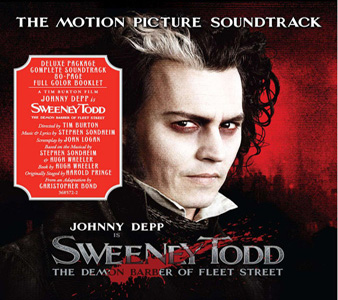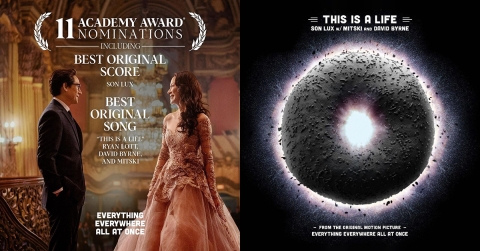New York Times film critic A. O. Scott, in his review of the Tim Burton–directed Sweeney Todd, calls the film "something close to a masterpiece, a work of extreme—I am tempted to say evil—genius." What is on display in the film is "some of the finest stage music of the past 40 years," which, in all its gory vividness, might be seen as "infernal," writes Scott, "except that you might just as well call it heavenly."
New York Times film critic A. O. Scott, in his review of the Tim Burton–directed Sweeney Todd, calls the film "something close to a masterpiece, a work of extreme—I am tempted to say evil—genius."
For Scott, Johnny Depp, in the title role, "brings the unpolished urgency of rock ’n’ roll to an idiom accustomed to more refinement, and in doing so awakens the violence of Mr. Sondheim’s lyrics and melodies." And while the filmmakers found it necessary to remove a few of the more famous numbers, with the composer's approval, its "absence only contributes to the diabolical coherence of the film," Scott says.
What is on display in the film is "some of the finest stage music of the past 40 years," which, in all its gory vividness, might be seen as "infernal," writes Scott, "except that you might just as well call it heavenly."
To read the full review, visit nytimes.com. To listen to some of that infernal, heavenly music, visit the Nonesuch Store.



